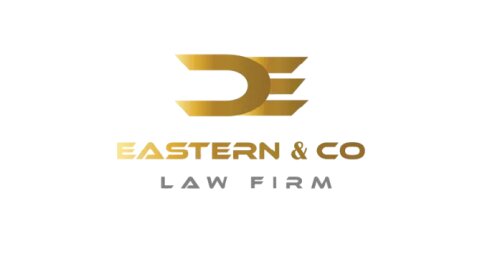Best Data Center & Digital Infrastructure Lawyers in Dokki
Share your needs with us, get contacted by law firms.
Free. Takes 2 min.
List of the best lawyers in Dokki, Egypt
1. About Data Center & Digital Infrastructure Law in Dokki, Egypt
Dokki is a district in the Giza Governorate within the Greater Cairo area. It hosts corporate offices and data center facilities that support Egypt’s growing digital economy. The legal framework governing data centers in Dokki covers licensing, data protection, cyber security, and interconnection with telecoms networks. Lawmakers tailor rules to protect personal data, ensure network resilience, and regulate cross-border data transfers.
Key regulators in this space include the Ministry of Communications and Information Technology (MCIT), the National Telecom Regulatory Authority (NTRA), and the Information Technology Industry Development Agency (ITIDA). These bodies issue guidance, licensing frameworks, and compliance expectations for data center operators and service providers. In practice, a Dokki data center must meet both national statutes and local permitting requirements from the Giza Governorate and relevant investment authorities.
For individuals and businesses, this means a data center project in Dokki may involve corporate licensing, data protection compliance, cyber security obligations, and contract governance with customers and telecoms providers. Ongoing regulatory developments emphasize secure handling of personal data and robust system protection for critical infrastructure. Staying aligned with these rules helps reduce regulatory risk and operational disruptions.
Source: Egypt’s Digital Transformation and Data Center policy initiatives are led by MCIT and ITIDA, with guidance on licensing and infrastructure development published on official government portals. See MCIT at https://www.mcit.gov.eg/ and ITIDA at https://www.itida.gov.eg/
2. Why You May Need a Lawyer
Below are concrete, dokki-specific scenarios where engaging a Data Center & Digital Infrastructure lawyer is essential. Each scenario reflects real world needs for operators in Dokki and the surrounding Cairo area.
- Opening a data center in Dokki requires coordinating land use, building permits, and utility agreements with landowners and the Giza Governorate. A lawyer can negotiate leases, assist with permit applications, and ensure compliance with local zoning laws.
- Drafting and negotiating power and fiber interconnection agreements with local telecoms providers is common for Dokki facilities. An attorney can clarify liability, service levels, and redress mechanisms under the NTRA framework.
- Implementing Personal Data Protection Law No. 151 of 2020 for operators hosting Egyptian customer data. A lawyer can help appoint a Data Protection Officer (DPO), map data flows, and prepare data processing records.
- Handling data breach responses and regulatory notifications under the Personal Data Protection Authority regime. Legal counsel can supervise incident response, legal hold, and coordination with regulators.
- Navigating cross-border data transfer rules for customers in Dokki and Egypt. A lawyer can assess adequacy statuses, transfer safeguards, and audit requirements to minimize compliance risk.
- Drafting and enforcing service level agreements, data processing agreements, and customer contracts for hosting services, backups, and disaster recovery. An advocate can ensure enforceable terms and regulatory alignment.
Source: Personal Data Protection Law No. 151 of 2020 governs processing of personal data and cross-border transfers; guidance and enforcement are overseen by the PDPA. See https://pdpa.gov.eg/
3. Local Laws Overview
This section highlights 2-3 key laws and regulations that govern Data Center & Digital Infrastructure activities in Dokki, with dates and recent changes where applicable.
Law No. 151 of 2020 on the Protection of Personal Data
This law establishes the framework for processing personal data in Egypt, including its collection, storage, use, and transfer. It introduces obligations for data controllers and processors, requires security measures, and sets cross-border transfer rules. It also creates a regulatory authority to oversee compliance and investigations. In practice, data center operators must audit data flows, maintain records, and implement breach response protocols.
Law No. 175 of 2018 on Cybercrime
The Cybercrime Law addresses offenses such as unauthorized access, data breaches, and cyber fraud. It imposes penalties for cyber security violations and outlines enforcement procedures. This is especially relevant to data center security programs, incident response, and cooperation with authorities in Dokki and across Egypt.
Law No. 10 of 2003 on Telecommunications
The Telecommunications Law regulates the provision of telecom services, licensing, and network interconnections. It has been amended over time to align with evolving digital infrastructure needs. Data center operators rely on these provisions when negotiating with telecoms carriers, obtaining licenses for network access, and meeting interconnection obligations.
Source: MCIT and ITIDA guidance outline the regulatory environment for data centers, including licensing, data protection, and telecom interconnections. See MCIT at https://www.mcit.gov.eg/ and ITIDA at https://www.itida.gov.eg/; regulatory enforcement of data protection is supported by PDPA at https://pdpa.gov.eg/
4. Frequently Asked Questions
What is the purpose of the Personal Data Protection Law in Egypt?
The law governs how personal data is collected, stored, used, and transferred. It creates obligations for data controllers and processors to protect privacy and security.
How do I start a data center project in Dokki?
Begin with a feasibility study, then engage an advocate to coordinate licensing with Giza authorities, ITIDA, and NTRA. Prepare a land lease or title and utility agreements.
What is a Data Protection Officer and when do I need one?
A DPO is required when processing large volumes of personal data or sensitive categories of data. An advocate can draft the appointment and define the DPOs responsibilities.
How long does it take to obtain regulatory approvals for a data center?
Approval timelines vary by project size and jurisdiction. Typical steps include local permits, telecom interconnection approvals, and data protection compliance reviews.
Do I need to hire a local Egyptian solicitor or advocate for this work?
Yes. Local legal counsel understands Dokki zoning, licensing rules, and regulator expectations. An advocate can coordinate with national regulators and local authorities.
What are the main compliance costs for a data center in Egypt?
Costs include licensing fees, security audits, data protection compliance measures, and contract negotiation with service providers and customers.
How is cross-border data transfer regulated in Egypt?
Cross-border transfers are subject to safeguards under the Personal Data Protection Law. Transfers often require consent, adequate protection, or appropriate safeguards.
What is the difference between a data hosting service and a telecom interconnection service?
Data hosting provides storage and processing services for client data, while telecom interconnection enables data paths between networks. Both are regulated by different authorities.
Is there a standard contract form for data center service agreements in Dokki?
There is no universal standard form. A lawyer can draft or review service level agreements, data processing agreements, and SLAs to reflect local law and regulator expectations.
What should I expect in a regulatory data security audit?
The audit typically assesses data protection measures, incident response readiness, access controls, and data privacy governance across operations.
Can foreign companies operate data centers in Dokki?
Foreign entities can operate via local entities or joint ventures, subject to Egyptian investment and licensing requirements managed by GAFI and MCIT.
What is the role of NTRA in data center operations?
NTRA regulates telecom interconnections, licensing for telecom service providers, and ensures compliance with national telecom regulations relevant to data centers.
5. Additional Resources
These official sources provide policy context, regulatory guidance, and official procedures relevant to data centers and digital infrastructure in Egypt.
- Ministry of Communications and Information Technology (MCIT) - national digital infrastructure policy, licensing guidance, and sector regulation. mcit.gov.eg
- Information Technology Industry Development Agency (ITIDA) - supports IT industry development, data center policy guidance, and cyber security initiatives. itida.gov.eg
- Personal Data Protection Authority (PDPA) - regulatory authority for personal data protection and cross-border data transfer rules. pdpa.gov.eg
6. Next Steps
- Identify your project scope and location in Dokki, including building type, energy supply, and water access. Set a provisional timeline for development and operation.
- Engage a Dokki-based advocate (solicitor) with experience in data protection, telecoms, and commercial contracts. Request a scope of work and retainer terms.
- Prepare a data governance plan mapping data flows, storage locations, and cross-border transfers. Have the advocate review for PDPA compliance.
- Consult with ITIDA and NTRA early to understand licensing steps, interconnection needs, and any sector-specific requirements. Schedule formal meetings.
- Draft or review core agreements: land or lease, power and fiber interconnection, data processing agreements, and service level agreements. Align with local law.
- Obtain necessary permits from the Giza Governorate and GAFI if you need investment licenses or special zoning approvals. Confirm timelines and required documents.
- Finalize a regulatory compliance plan with a clear calendar for audits, security measures, and incident response procedures. Prepare for ongoing regulatory inquiries.
Lawzana helps you find the best lawyers and law firms in Dokki through a curated and pre-screened list of qualified legal professionals. Our platform offers rankings and detailed profiles of attorneys and law firms, allowing you to compare based on practice areas, including Data Center & Digital Infrastructure, experience, and client feedback.
Each profile includes a description of the firm's areas of practice, client reviews, team members and partners, year of establishment, spoken languages, office locations, contact information, social media presence, and any published articles or resources. Most firms on our platform speak English and are experienced in both local and international legal matters.
Get a quote from top-rated law firms in Dokki, Egypt — quickly, securely, and without unnecessary hassle.
Disclaimer:
The information provided on this page is for general informational purposes only and does not constitute legal advice. While we strive to ensure the accuracy and relevance of the content, legal information may change over time, and interpretations of the law can vary. You should always consult with a qualified legal professional for advice specific to your situation.
We disclaim all liability for actions taken or not taken based on the content of this page. If you believe any information is incorrect or outdated, please contact us, and we will review and update it where appropriate.









